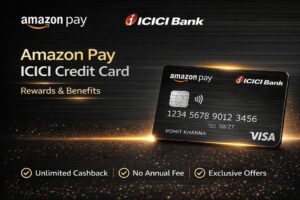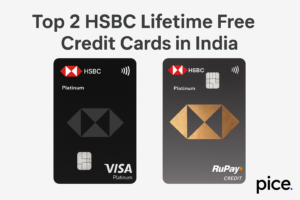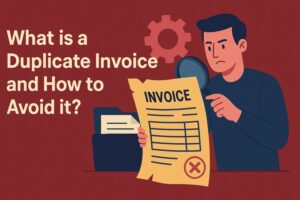What Happens If You Dont Pay Credit Card Bill in 2025?
- 23 Oct 25
- 6 mins
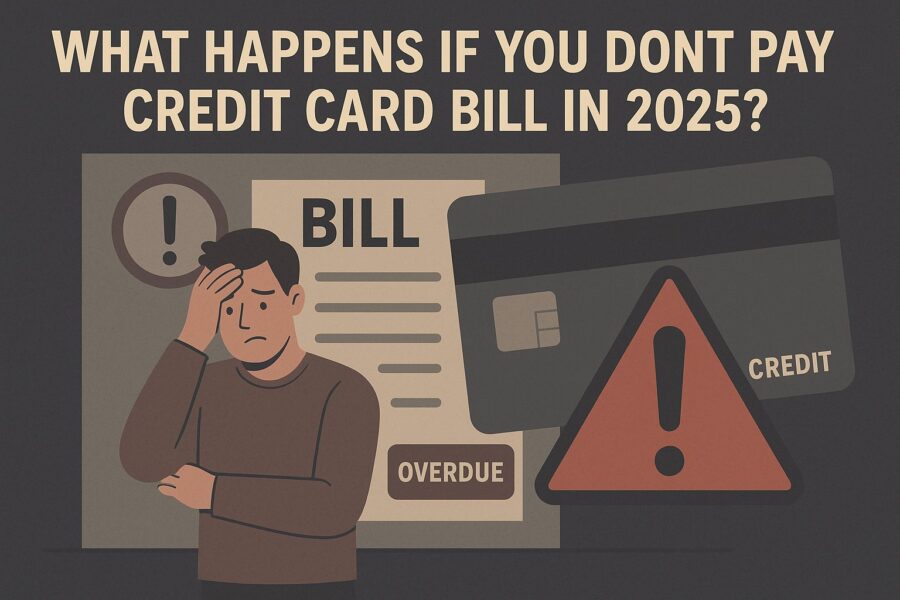
What Happens If You Dont Pay Credit Card Bill in 2025?
Credit cards typically offer an interest-free period of up to 45 days, but after this period, if the bill is not paid in full, interest charges apply. It is crucial to understand what else happens if you do not pay your credit card bill on time. Find out what happens if you dont pay credit card bill within the due date. Additionally, learn about the things that you should do if you cannot pay a bill.
What Happens If You Dont Pay Credit Card Bill: Effects and Consequences
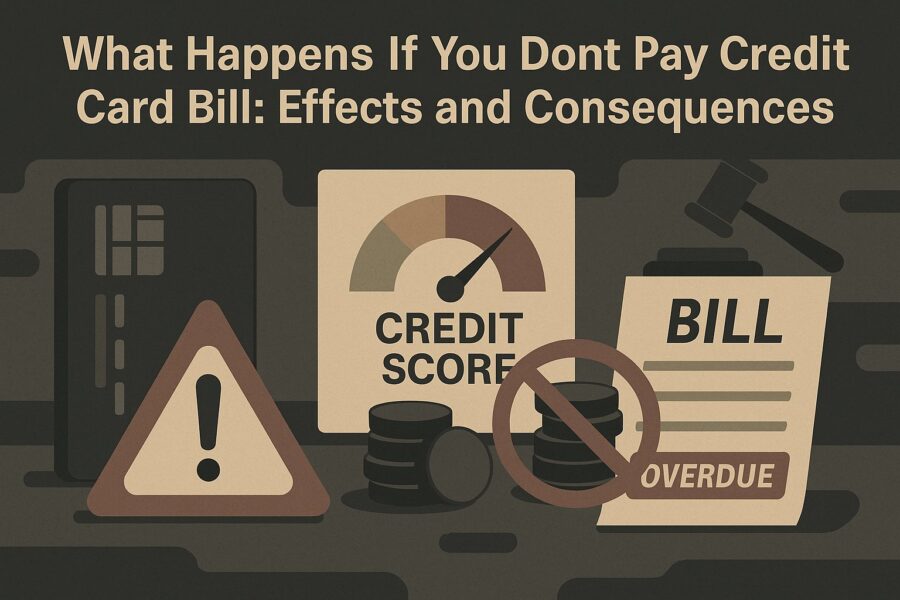
Reduced Credit Score
If you do not pay the credit card bill within the bill due date, it might adversely affect your credit history and creditworthiness as the credit card issuer notifies the credit bureaus, who prepares your credit report.
Imposition of Late Payment Fees
The credit card issuer might impose a late fee if you miss a credit card bill payment. This increases the outstanding amount which you need to pay.
Loss of Promotional APR (Annual Percentage Rate)
A credit card company might provide promotional offers with low or 0% interest rates on certain credit cards. However, if you miss paying your credit card bills, the card issuer might not provide such offers for your card.
Imposition of Penalty APR and High Interest Rate
A credit card issuer might levy high interest charges on credit card holders with missed payments and outstanding balances. This increases the total amount due for your payment.
Blacklisting or Credit Card Blocking
Credit card companies might blacklist the cardholder for multiple missed payments. This might prevent you from getting new credit cards or loans from different financial institutions.
In addition, the card issuer might block your credit card, preventing further transactions. The card issuer might unblock the card later after payment of the outstanding bill amount.
Legal Action Against the Cardholder
A credit card issuer might undertake legal action against the cardholder for an unpaid credit card bill. This results in adverse legal implications for the cardholder if he/she fail to pay the bill amount.
Asset Acquisition
If the credit card issuer has access to your savings account or other accounts, they might deduct payment against your outstanding balance from such accounts. In case the bill amount is significantly high, banks might seize your property to settle the amount due.
Visit by Recovery Agents
Banks usually allow a certain period for cardholders to pay the bill, such as around 60 to 90 days. However, if the bill amount is unpaid during this period, the bank might forward the case to the recovery house and debt collection agency. Recovery agents might visit you or connect with you to ask for payment of the outstanding balance.
Things to Do If You Miss Paying a Credit Card Bill
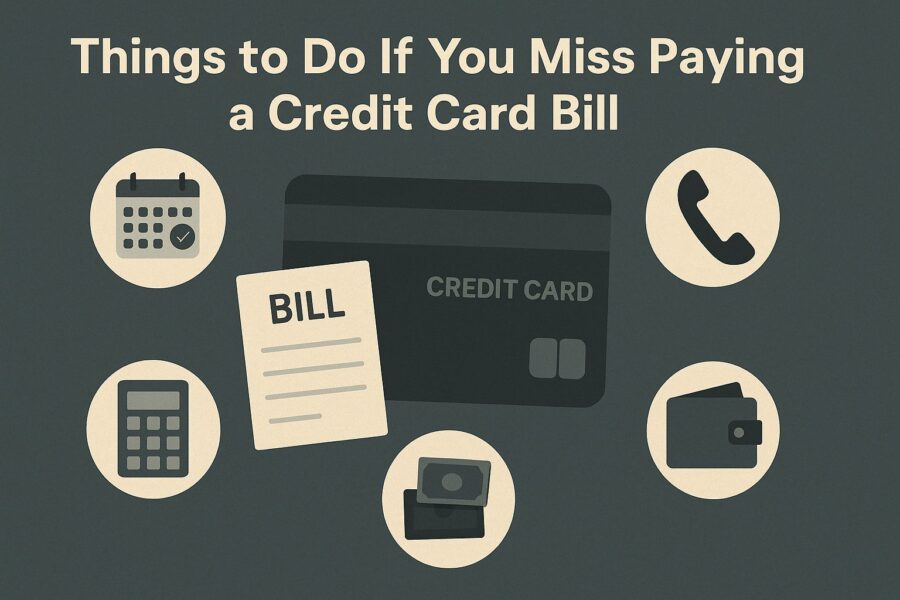
Pay the Minimum Payment Due
Your credit card bill comes with a minimum amount due for every billing period, mentioned on the credit card statement. For instance, if the total outstanding bill amount is ₹10,000, your minimum due amount for the billing cycle can be ₹800.
You need to pay the minimum bill amount within the due date if you cannot pay the entire bill amount. This will reduce the total outstanding amount to a certain extent.
Contact Your Credit Card Issuer
You can connect with your credit card company to inform them that you cannot pay the bill. They might suggest an alternative to address the issue.
Set Automatic Payments
You can set auto-pay reminders to avoid missing your credit card bill payment. Several credit cards come with the auto-pay feature on the bank's app. This will enable automatic debit of the bill amount on the due date, helping you avoid non-payments.
Consider Rebudgeting
Reconsider your monthly budget to allocate a certain amount for debt payment. This will help you clear your credit card debts within the stipulated time. Moreover, avoid overspending on your credit card to adjust your budget.
For instance, if you allocate ₹5,000 monthly for debt payment, ensure you spend within ₹5,000 during the month. Spending more than the mentioned amount will increase your debt and create challenges in bill payment.
Avoid Paying on the Last Date
Your credit card bill comes with a payment due date. However, you need to ensure that you pay your bills before the due date to avoid a lack of funds and non-payment on the due date.
Look for Balance Transfer Options
Several banks provide balance transfer offers to credit cardholders. Promotional balance transfer offers might have 0% or low credit card interest rates on the outstanding balance. You can select a bank offering a lower interest rate for a balance transfer.
Covert Dues into EMI
Converting the total bill amount into EMI (Equated Monthly Instalment) can be one of the options to avoid missing payments. This allows you to pay an equal amount every month until the entire bill is paid.
Bankruptcy Filing
If you have a large amount outstanding (credit card default) on your credit card that you are unable to pay, you can file for bankruptcy. This will help you restructure your credit card debts or discharge the due amount on your credit card.
Consider Taking a Personal Loan
Personal loans often come with a lower interest rate compared to the interest rate on credit cards. You can take a personal loan to repay your credit card debt while you pay EMI at a lower interest rate on your personal loan.
💡For timely credit card payments consider using the PICE App.
Conclusion
Now that you know what happens if you dont pay credit card bill, ensure you pay the outstanding amount within the due date. This will not only help maintain a good credit history but also help you avoid paying additional interest and late fees.
If you cannot pay the entire bill amount in a billing cycle, ensure you pay at least the minimum amount or more to avoid adverse legal consequences. Adhering to a budget can further help you manage your debts efficiently while you pay your credit card bill on time.
 By
By 






